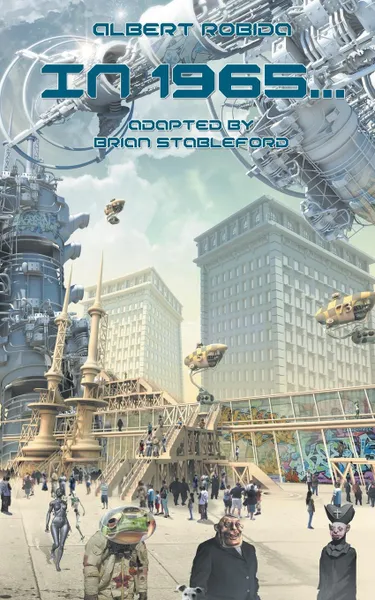In 1965 12+
📙 In 1965 (1920) is a amicable and breezy work, with only a slight macabre edge in its comedy, recapitulating and updating the technological innovations of The Electric Life. The history of the twentieth century sketched out in Robida’s earlier books is modified in order to accommodate the Great War, the aftermath of which plays a considerable part in the back-story. Its futurological elements introduce several significant innovations to supplement the telephonoscope and the commonplace use of private aircrafts and flying houses.
Centaur Island (1912) which is a fine example of modern Gulliveriana. Featuring the fanciful notion of a sailor stranded in the midst of centaur civilization the story holds up a satirical mirror to the less savory features of European society.
The two novellas share a similar utopian philosophy and sarcastic distaste for certain aspects of modern civilization, despite the drastic variance between their respective imagery. That combination of similarity and contrast form an interesting, appealing and eminently readable diptych.
Centaur Island (1912) which is a fine example of modern Gulliveriana. Featuring the fanciful notion of a sailor stranded in the midst of centaur civilization the story holds up a satirical mirror to the less savory features of European society.
The two novellas share a similar utopian philosophy and sarcastic distaste for certain aspects of modern civilization, despite the drastic variance between their respective imagery. That combination of similarity and contrast form an interesting, appealing and eminently readable diptych.
Мнения
